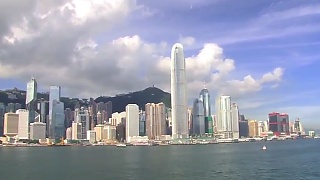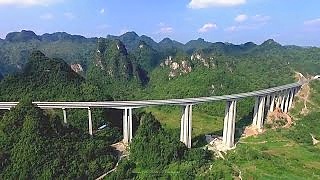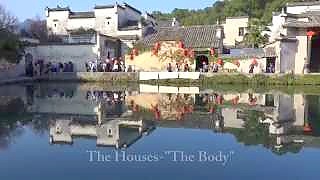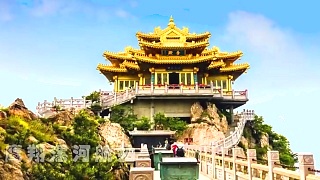As in Tibet, BeiJing (89), and XinJiang, violent separatists have been created, aided and spurred on by the West. Rational protests were hijacked by foreign powers and their proxies. This is all about trying to undermine China, to keep it down. None worked, but now they are doubling down. This is what the US has and still does the world over. Central and south america, Africa and Asia, never allowed to fulfill their potential; coups and wars always snuffing out the possibilities. Even in Europe and the Middle East, as we see today.
Fact : Hong Kong people never had the right to vote for their leaders under UK rule; not until China took back the reign from British colonial power.
Thanks to the National Security Law, peace has finally returned to Hong Kong after a year of destructive riots and terror that wrecked Hong Kong's international image and economy.
To China, the people of Hong Kong are family. To the West, they are just pawns in trying to bring down all of China and its people.
With Cyrus Janssen ...
[640],shadow=true,start=,stop=YT comment : "The colonizer not only colonizes territory, they also colonize the local people's minds, through promoting their own culture over theirs, and also by devising education systems to inculcate their values into the local children. Even after the colonizer leaves, the minds of the people often remain enslaved and loyal to their former masters. This "colonial mentality" remains predominate in Hong Kong, India, the Philippines and other former colonies. Many in Hong Kong (though not all) tend to have the colonial mentality. Colonial mentality is the internalized perception of ethnic or cultural inferiority felt by people as a result of colonization. Such people tend to display a preference for the cultures of the Anglo-Saxons, while harboring a disdain for any "non-Anglo" culture, including their own! Hong Kong people had to bow to the British and stand for their National Anthem. They were treated as second rate citizens."
"'You are free to agree, but not free to differ on the official truth'."
"The ultimate hypocrisy is the UK supporting 'democracy' for HK when they never introduced it in all the 152 years of colonial rule. In 1967, HK anti colonial protests ended in the shooting of civilians, and I remember being teargassed in our apartment as a child. Young HK people need to learn from history. Foreign interference is anathema to any country."
"'Any country that is not a slave is our enemy' - the US"
Bonus films -
With Danny HaiPhong ...
Ben Norton on the NEW Cold War and Europe's economic suicide ...
[320],shadow=true,start=,stop=On the CIA, with Jeffrey Sachs ...
[320],shadow=true,start=,stop= [320],shadow=true,start=,stop= [320],shadow=true,start=,stop= [320],shadow=true,start=,stop= [320],shadow=true,start=,stop=With Brian Berletic ...
[320],shadow=true,start=,stop= [320],shadow=true,start=,stop= [320],shadow=true,start=,stop= [320],shadow=true,start=,stop= [320],shadow=true,start=,stop= [320],shadow=true,start=,stop= [320],shadow=true,start=,stop= [320],shadow=true,start=,stop= [320],shadow=true,start=,stop= [320],shadow=true,start=,stop= [320],shadow=true,start=,stop= The truth on how the violent Hong Kong riots were indeed a US / UK coup attempt
The truth on how the violent Hong Kong riots were indeed a US / UK coup attempt




![Planning War On China part 40 (the encore). From now, all similar content will be on the new Geopolitics page, so do check that out and bookmark. Something Different, health, and psychology videos are likely to also move to their own pages. So we will still cover all these aspects of life, but have more time to focus on Chinese culture and China travel. *************************** Official racism is a very important fact to consider, and because it is is based on propaganda, can be easily missed for what it really is. Yet once seen, it is all so clear. Us and Them - is the sales pitch of supremacists and bomb companies. That is ALL it is. There is no `us and them`; that is just a scam to fool you into obedience / subservience / enslavement. The real schism is that there are real / open-eyed people, and then there are the brainwashed / believers people. Simple as that. Puppets at the top; puppets at the bottom. One life, one world, one family. One has love, or one does not. Real love doesn`t have targets; real love is a light that shines in all directions. Onto the video film . . . With George Galloway in conversation with Jerry`s Take on China . . . Bonus films . . . George at his very best - don`t miss it . . . What is more important - life or money (power) ? Simply believe ? Or be free to see reality ?? No longer puppet. Live more . . . Because it is not about `me` (that is the scam / fantasy, and a big topic in itself - `your problems are all your fault`, is part of it); it is really about `WE`. In China, the people are family. In the West, the people are livestock. And that is the `threat`. [ video v=fIxPv2Dn_P0 ] Oliver Stone interviews Vladimir Putin . . . Taiwan the next Ukraine ? . . . Lee Camp . . . [ video v=OSkpIq3T-Zc ] Racism is racism is racism. There is NO excuse, no matter how `official` it is sold to you. Something like 3 million died in the Vietnam war (not including the carpet bombing of Laos and Cambodia), alone. This is what racism entails. How many times will this lie play out ? Meanwhile . . . Peace. Official racism. Reality is so very different from the 'official' / MSM narrative / fairy tale - DON'T MISS THIS !](https://img.youtube.com/vi/Kc7f4JKhwtk/mqdefault.jpg)




![`US-sponsored separatist groups, backed by Washington for decades, are being mobilized to attack and undermine activities related to the BeiJing 2022 Olympics, starting with the torch relay in Greece. I explain the background of the “Free Tibet” movement and how the US government, through the CIA, backed it as early as the 1950s and transferred its operations to the National Endowment for Democracy (NED) [or `Dominion` / enslavement]. ` With The New Atlas . . . Bonus films - terror activities by US-backed `opposition` in Myanmar . . . Bonus film 2 - subverting the `left` . . . Bonus film 3 - on Ecuador . . . Bonus film 4 - on Cambodia . . . They say : `How dare you put your face in front of my fist ! Serve your master. Or else. ` More . . . On the US plan to nuke Chinese cities - as revealed by Daniel Ellsberg, famous for the `Pentagon Papers`, with NuMuves . . . On the Falun Gong cult . . . *** Planning war on China - part 11 - don't miss it ***](https://img.youtube.com/vi/2w31eNNcGVU/mqdefault.jpg)

















































